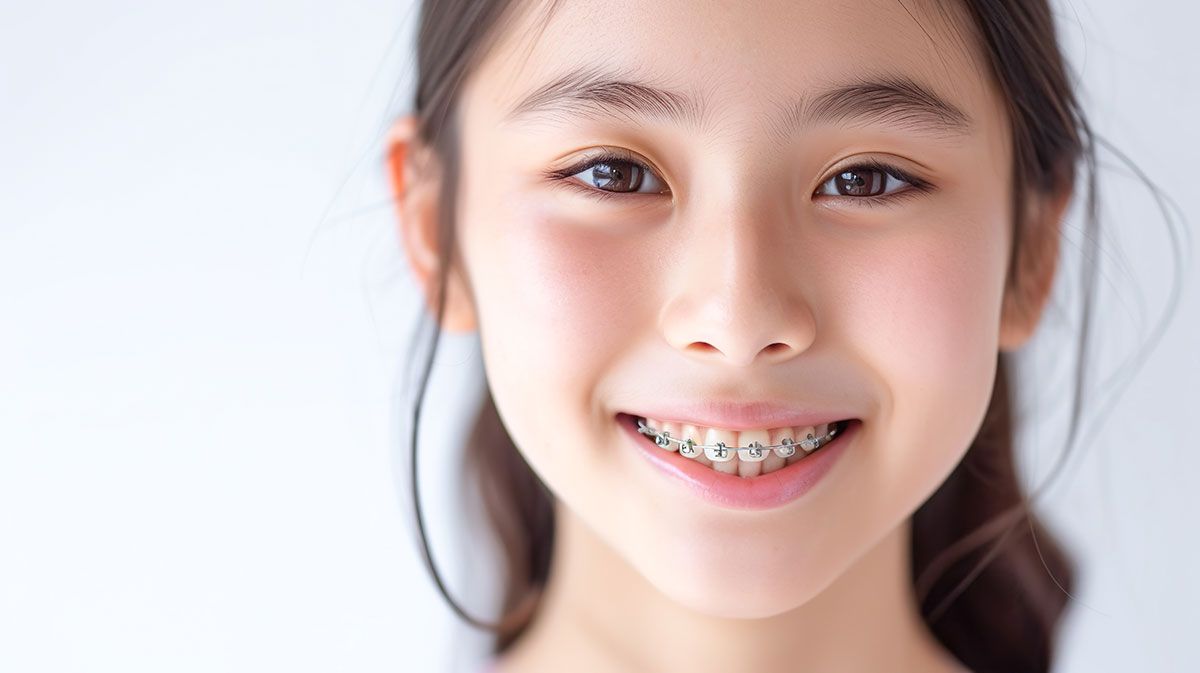Some situations that may warrant a specialist Orthodontic consultation at an earlier age:
If you notice that your child has:
Early or Late Loss of Baby Teeth
Baby teeth usually guide the eruption of the adult teeth. If they are lost very early, the adult teeth may not have sufficient space to erupt or may do so before their time. On the other hand, if baby teeth fail to shed beyond their normal time there may not be enough space for the incoming adult teeth and this can lead
to
“crowding”
and teeth can be in poor or pushed out of alignment completely.
Difficulty in Chewing or Biting , Biting into Cheeks or Palate
A
discrepancy in size of teeth and jaws
may result in the teeth constantly biting into the cheeks or palate resulting in redness or frequent ulcers which may be painful. You can look for signs such as the teeth not meeting normally when they bite down hence not being able to chew properly. Children not interested in food, or eating slowly could be other signs that may indicate a problem.
Thumb / Finger Sucking or Mouth Breathing
Most childhood habits such as
“Thumb sucking / finger sucking”
or mouth breathing are harmless up to a certain age and most children will stop between the ages of 2-4. Beyond this age, they pose a number of problems such as dental- facial deformities, crooked teeth and improper growth and development.
Seek an orthodontist’s help
to break these habits as they are detrimental to your child with the help of habit-breaking appliances.
Problems with Pronunciation
Speech production and pronunciation
of many words require the tongue and teeth working in harmony. Not being able to correctly pronounce some words or sounds like “S” or “T”, or frequently speaking with a lisp, are some signs of potential structural issues in the mouth which
require orthodontic intervention. Some adaptive speech habits or behaviours may not be easily corrected later if the structural issues were not corrected at an early age. If you notice this, it is important to see any good orthodontist in Singapore early.
Excessive Overbite or Overjet
It is fairly common to notice a lot of young children with “buck teeth” or “bunny teeth”. This is due to an increased Overjet or Overbite, which means that the front teeth are protruding outward more than they should be (Overjet) or they completely or nearly completely overlap the lower teeth (Overbite).
If an excess Overjet is not corrected by a good and specialized orthodontist in time, the child may be prone to
fracture or chipping of the teeth
even during minor falls. An overbite on the other hand may cause wear and tear of tooth enamel, pain and frequent biting of the lower lip.
New Erupting Teeth that are obviously Out of Alignment
These teeth may also appear to be not meeting properly. Normal daily activities like speaking and chewing can be affected, in some cases severe enough to affect the self-esteem and well-being of a child. Correction of
irregular teeth
early on can greatly reduce the time required for braces later on in life. It could also minimise the number of teeth extraction or removal later.
Lower Jaw Shifts Sideways when Talking or Biting
An indication that there may be some developmental issues and if left untreated, it may be more difficult or complex to rectify in future. You may want to seek the opinion of the best specialist orthodontist in town for advice as it can be complicated.
Face or Jaws looks Too Long or Too Short
This can be due to jaw size and teeth that are not proportional to the rest of the teeth and face. Any such discrepancies can cause a number of orthodontic problems not only affecting the teeth but also the facial structure of a person. Luckily an orthodontist can foresee such problems, provide recommendations and rectify them in a timely manner.
To get these conditions checked by an orthodontist with a special interest in paediatric dentistry, schedule your orthodontic consultation today with Dr. Catherine Lee.
About Our Clinic:
At Dr. Catherine Lee Orthodontics, we have a dedicated team of doctors and staff whose skills and experiences help our patients enjoy the process of creating healthier, beautiful smiles. We have a strong focus on growing children, and especially welcome those who need orthodontics and dentistry for kids. For a consultation, contact us at
enquiries@DrCatherineLeeOrthodontics.com.






